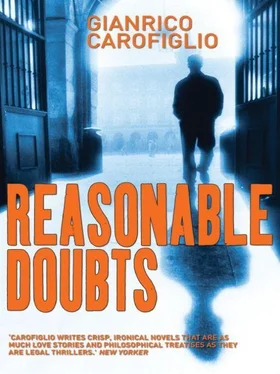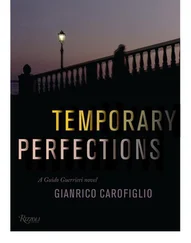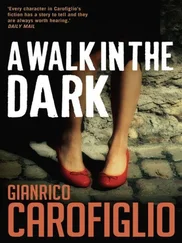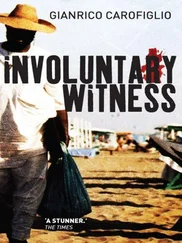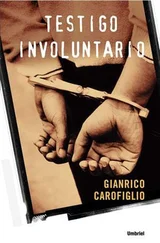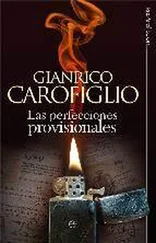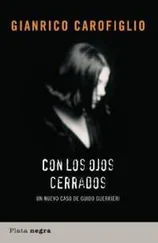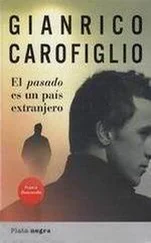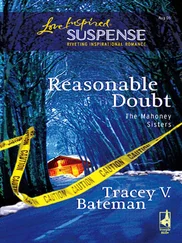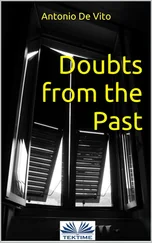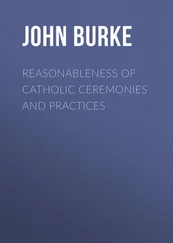Gianrico Carofiglio - Reasonable Doubts
Здесь есть возможность читать онлайн «Gianrico Carofiglio - Reasonable Doubts» весь текст электронной книги совершенно бесплатно (целиком полную версию без сокращений). В некоторых случаях можно слушать аудио, скачать через торрент в формате fb2 и присутствует краткое содержание. Жанр: Криминальный детектив, на английском языке. Описание произведения, (предисловие) а так же отзывы посетителей доступны на портале библиотеки ЛибКат.
- Название:Reasonable Doubts
- Автор:
- Жанр:
- Год:неизвестен
- ISBN:нет данных
- Рейтинг книги:5 / 5. Голосов: 1
-
Избранное:Добавить в избранное
- Отзывы:
-
Ваша оценка:
- 100
- 1
- 2
- 3
- 4
- 5
Reasonable Doubts: краткое содержание, описание и аннотация
Предлагаем к чтению аннотацию, описание, краткое содержание или предисловие (зависит от того, что написал сам автор книги «Reasonable Doubts»). Если вы не нашли необходимую информацию о книге — напишите в комментариях, мы постараемся отыскать её.
Reasonable Doubts — читать онлайн бесплатно полную книгу (весь текст) целиком
Ниже представлен текст книги, разбитый по страницам. Система сохранения места последней прочитанной страницы, позволяет с удобством читать онлайн бесплатно книгу «Reasonable Doubts», без необходимости каждый раз заново искать на чём Вы остановились. Поставьте закладку, и сможете в любой момент перейти на страницу, на которой закончили чтение.
Интервал:
Закладка:
“It could be objected: That’s what you say, Guerrieri.
“It’s true, it is what I say, but, if you have any doubts about the existence of such a modus operandi, you still have time, even after you retire to deliberate, to arrange for further evidence to be admitted, for example a statement by the head of the narcotics section of the Bari Flying Squad, or any other officer in a narcotics unit, who will be able to confirm that this particular criminal practice has indeed been known to take place.”
It was at this point that I glanced at my watch and realized that I had been speaking for an hour. Too long.
I could see from their faces that they were still following me, but I wouldn’t be able to keep their attention much longer. I had to try and bring my speech to a conclusion. I quickly returned to more general topics: the question of method, my interpretation of the evidence as opposed to the assistant prosecutor’s.
“Whenever it is possible to construct a multiplicity of stories capable of encompassing all the evidence within a coherent narrative, we must conclude that the evidence is doubtful, that there is no legal certainty, and that therefore we must acquit.
“Needless to say, in this area it is not a question of a competition between the degrees of probability of the various stories. To put it another way: it is not enough for the assistant prosecutor to propose a more probable story to win the case.
“In order to win the case, in other words, to make sure that the sentence is upheld, the assistant prosecutor must propose the only acceptable story. In other words, the only acceptable explanation of the facts of the case. All the defence has to do is propose a possible explanation.
“I repeat: this is not a contest between degrees of probability. I know perfectly well that the assistant prosecutor’s story is more probable than mine. I know perfectly well that the law of experience on which the assistant prosecutor’s story is based is stronger than mine. But this law of experience is not life. It is, like all laws of experience, a way of interpreting the facts of life, an attempt to make sense of them. But life, especially those areas of life which result in legal proceedings, is more complicated than our attempts to reduce it to classifiable rules and to well-ordered, coherent stories.
“A philosopher has said that facts and actions have no meaning in themselves. The only thing that can mean anything is the narrative we make out of those facts and actions.
“We all of us – and not only in court – construct stories to give meaning to facts which in themselves have none. To try and bring order out of chaos.
“When we get down to it, stories are all that we have.”
I stopped. A thought had suddenly crossed my mind. Who was I saying these things to? Who was I really talking to?
Was I talking to the judges in front of me? Or to Natsu, who was behind me even though I couldn’t see her? Or Paolicelli, who – however things ended up – would never know the meaning of this story? Or was I talking to myself and was everything else – everything else – just a pretext?
For a few moments, I thought I knew what it all meant, and I gave a slight, melancholy smile. Just for a few moments. Then that meaning, if I really had found one, disappeared.
I told myself that I had to start speaking again, had to bring my argument to a conclusion. But I didn’t know what else to say. Or rather, I didn’t feel like saying anything. All I wanted was to get out of there.
Still I didn’t speak. I saw a questioning look on the faces of the judges. They were starting to get impatient.
I had to bring my argument to a conclusion.
“Life does not work by selecting the likeliest, most believable or most well-ordered stories. Life isn’t well ordered and doesn’t always tally with the laws of experience. In life there are sudden strokes of good luck and bad luck. You may win the lottery; you may contract a rare, fatal disease.
“Or you may be arrested for something you didn’t do.”
I took a deep breath. I felt as if all the exhaustion in the world had descended on my shoulders.
“The assistant prosecutor and I have told you many things. The kind of things that help us to debate cases and to come to conclusions. The kind of things that help us to justify our arguments and our decisions, to give us the illusion that they are rational arguments and decisions. Sometimes they are, sometimes they aren’t, but that’s not really the most important thing. The most important thing is that at the moment of making the decision you are – we are – alone, faced with the question: am I sure this man is guilty?
“We are alone, faced with the question: what is the right thing to do? Not in the abstract, not according to any method or theory, but specifically, in this case, in relation to the life of this man.”
I had said these last words almost under my breath. I stood there in silence. Pursuing a thought, I think. Perhaps searching for a closing phrase. Or perhaps searching for the meaning of what I had said, and leaving the words to hang in the air.
“Have you finished, Avvocato Guerrieri?” Mirenghi’s tone was polite, almost cautious. As if he had realized something and didn’t want to appear intrusive or tactless.
“Thank you, Your Honour. Yes, I’ve finished.”
He then turned to Paolicelli, who was standing there with his hands together, his head against the bars.
He asked him if he had anything he would like to say before the court retired to deliberate. Paolicelli turned to me, then back to the judges. He seemed to be about to say something. In the end he just shook his head and said no, thank you, Your Honour, he had nothing to say.
It was at that moment, as the judges gathered their papers to retire to their chamber, that I was struck by a feeling that I was hovering between dream and reality.
Had the events of the past four months really happened? Had Natsu and I really made love, twice, in my apartment? Had I walked in the park with Natsu and little Midori, taking unfair advantage of those few minutes to play father, or had I only imagined it? And was the defendant Fabio Paolicelli really the Fabio Rayban I’d been obsessed with during my teenage years? And did it still matter to me to find out the truth about that distant past, supposing there had ever been a truth to find out? On what basis can we say with any certainty that an image in our head is the result of something we’ve actually seen or an act of the imagination? What really distinguishes our dreams from our memories?
It lasted a few seconds. When the judges disappeared into their chamber my thoughts went back to normal.
Whatever the word means.
47
That day there were several hearings involving prisoners, in various courtrooms, and not many guards. So the head of the escort had asked Mirenghi for permission to take Paolicelli back down to the holding cells so that he could use his men in other courtrooms. When the judges were ready to give their decision, the clerk of the court would call the head of the escort and Paolicelli would be brought back up to the courtroom for the ruling to be read out.
Only Natsu and I were left in the courtroom. We sat down behind the prosecution bench.
“How’s Midori?”
She shrugged, a forced smile on her lips. “Well. Quite well. She had a nightmare last night, but it didn’t last long. They’ve become shorter and less violent lately.”
We looked at each other for a few moments and then she stroked my hand. Longer than was advisable, if we wanted to be careful.
“Congratulations. It wasn’t an easy speech, but I understood everything. You’re very good.” She hesitated for a moment. “I didn’t think you would go to so much trouble.”
Читать дальшеИнтервал:
Закладка:
Похожие книги на «Reasonable Doubts»
Представляем Вашему вниманию похожие книги на «Reasonable Doubts» списком для выбора. Мы отобрали схожую по названию и смыслу литературу в надежде предоставить читателям больше вариантов отыскать новые, интересные, ещё непрочитанные произведения.
Обсуждение, отзывы о книге «Reasonable Doubts» и просто собственные мнения читателей. Оставьте ваши комментарии, напишите, что Вы думаете о произведении, его смысле или главных героях. Укажите что конкретно понравилось, а что нет, и почему Вы так считаете.
